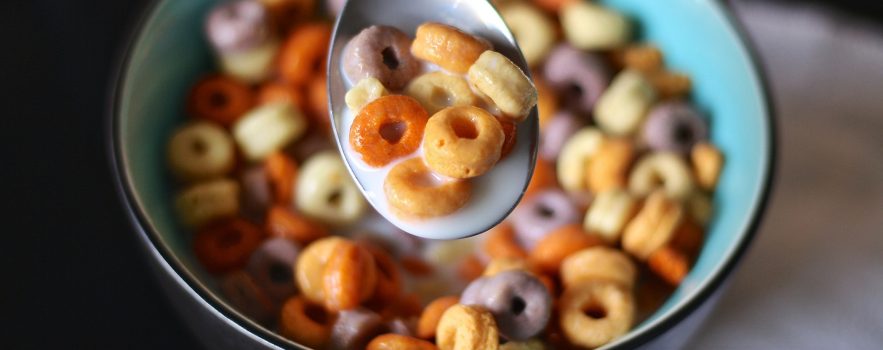This article by Sonja Klingberg, a PhD student in the Unit’s Behavioural Epidemiology programme, was shortlisted for the 2018 Max Perutz Science Writing Award. You can read all the shortlisted and winning articles here.
“Our daughter doesn’t usually eat this for breakfast,” said the woman across the table from me. We were having breakfast together at a small lodge in South Africa, and I had just answered this fellow guest’s question about the topic of my PhD research. In hindsight, I probably shouldn’t have told her I study childhood obesity when we were having a nice conversation over a shared meal.
The woman’s 3-year-old daughter was eating sugary cereal, and I had not noticed this until I realised the mother’s embarrassment. If I had to guess, I would have assumed they were both a ‘healthy’ weight, and yet mentioning obesity had clearly alarmed the mother. Since then, I have been thinking a lot about how to promote health without promoting fears.
Childhood obesity is a significant public health concern but it is also a difficult one. I mean this both in the sense that it is genuinely difficult to address childhood obesity, and that it is a difficult topic to discuss. Nevertheless, we must discuss it because overweight, obesity, and related behaviours such as lack of sufficient physical activity, are associated with numerous severe health problems in childhood and beyond.
My research focuses on childhood obesity in South Africa where over half of adult women, and nearly half of adult men, are overweight or have obesity. Framing childhood obesity prevention in a way that can constructively engage parents rather than stigmatise them is a real challenge.
Particularly on social media, discussions around obesity prevention often suggest the problem is not the phenomenon of unhealthy excess weight gain but rather the people who ‘let’ this happen to them or their children. TV shows about obesity have names like Fat Fight and Biggest Loser. Even a recent Cancer Research UK campaign highlighting the link between obesity and certain cancers was criticised for being fat-shaming.
While the link to cancer is supported by scientific evidence, it is understandable that such a campaign would cause debate. It seems easy to forget that people’s health, illnesses, appearance, and habits are not necessarily separate from their sense of identity. If obesity is part of who I am, how does it feel to hear that who I am can cause cancer?
It is well-documented that many health problems, including overweight and obesity, are patterned by society’s existing inequalities. Diagnoses often come with stigma attached, and stigma in itself can be harmful to health and well-being, as well as disadvantage people in many other ways. Thus, we ought to consider how research and health promotion efforts may inadvertently contribute to such harm. We should also not assume that weight-related stigma means the same thing across cultures and settings.
In my research, I am learning to approach these topics through interviewing parents of preschool-age children in South Africa about their perceptions and circumstances. How do parents interpret health and healthy behaviours? What constrains them, and what might help them? Such insights will help design childhood obesity prevention efforts that can hopefully resonate with the lived experiences of families.
As part of my PhD research, I have also reviewed childhood obesity prevention programmes in different African countries to understand what works and what doesn’t. I have not come across any studies that have found fat-shaming, parent-blaming, humiliation, or any kind of judging, an effective way to address overweight and obesity. Nevertheless, I can see how people might expect shame or fear to motivate healthy habits and weight-loss.
Behavioural science has helpfully identified some conditions that seem to define how well fear-arousing health messages work. Firstly, people need to believe that changing their behaviour would actually make them healthier or safer. Secondly, people need to believe in their own ability to change their behaviour. Losing weight in the longer term is notoriously difficult, and so evoking people’s fears without also encouraging them to think they can do something about it is unlikely to work.
So, while I don’t yet know what exactly will work to prevent childhood obesity in South Africa, I do know this: parents may have different views on what is healthy and what is best for their children but we should stop trying to scare them into changing their views and habits. It’s not nice, and it probably won’t work.
Sonja Klingberg

 MRC Epidemiology Unit
MRC Epidemiology Unit